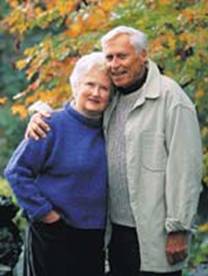|
|
Study: Baby Boomer Volunteerism Could
'Strengthen Community Life'
By Janet Kornblum, USA Today
June 15, 2004

Some people look at the 77 million baby boomers and worry about all the medical and social resources they will need as they approach the traditional age of retirement.
But a study to be released today by the Harvard School Of Public Health says boomers -- who are expected to live longer and healthier lives than their parents -- can become an unprecedented resource if they are mobilized across the nation as community volunteers.
''There's a major opportunity on the near horizon to recruit large numbers of older boomers to help strengthen community life in America,'' says Jay Winsten of the Harvard School of Public Health. Winsten is director of the Harvard-MetLife Foundation Initiative on Retirement and Civic Engagement, whose report will be presented today in Washington, D.C.
But he says non-profit organizations that could use those volunteers need to create meaningful jobs for them. Boomers, he says, won't be satisfied stuffing envelopes. ''Boomers have expectations as to the kind of useful roles they can play in helping organizations.''
The initiative also includes plans to launch a national media campaign aimed at changing attitudes toward older people so they're not seen as a burden, but a resource.
The oldest of the boomers, who will begin turning 65 in 2011, were raised on John F. Kennedy's 1961 call to action and already volunteer, according to AARP, an advocacy group for those 50 and over. In one survey, AARP found that 48% of working adults 45 and older say they volunteer.
Some volunteerism happens naturally when parents help at their children's school and other activities. But as people age, volunteering tends to drop off for several reasons, including declining health and poverty, says Robert
Prisuta, AARP associate research director. Sometimes older people stop volunteering because no one asks them to help, Prisuta says.
The idea behind the report is ''to get a dialogue going just to raise awareness,'' Prisuta says.
And part of raising awareness is simply recognizing that when boomers retire, retirement won't be the same as for previous generations.
''The old story was you worked until you were 65, you hung around until you were 67, you got sick, and then you died,'' says John
Gomperts, CEO of Experience Corps, which recruits people 50 and older to volunteer in their local communities.
''Now people have a reasonable expectation of living in a healthy way, way into their 80s. We have this additional stage of life, these additional years. And it's an open question -- what's going to happen with those years?''
|
|



